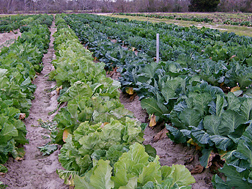One of my favorite phrases is “same same but different”. I think that it sums up a lot of things about comparing cultures. Like “are the mountains in Kenya the same as in the US?” “Yeah, they are same-same, but different.” I think that it is a good way of cutely summarizing the complexity of comparison - things across the globe have some similar features but in other important ways are very different.
Thoughts on being different – The thing about being in Africa is how different you feel, as a white visitor, wherever you go. And the Kenyans go out of their way to let you know how different you are, don’t worry, you won’t forget you look different. From the kids shouting “mzungu” or “howareyou” continuously, to the mzugu-price you are given wherever you go, to the spontaneous marriage proposals, I am continually feeling different from the rest of the crowd. Men stare, women glare, kids shout and smile. Chairs materialize from nowhere so I can sit at a moment’s notice, I am given prime standing/seating, and assumed fragile or unknowing. I get begged for money and the vendors try to sell me earrings for $20, when I should pay $1. I look different and because of my skin color and my assumed nationality, am treated different. And in many ways, we are different. I grew up in a town with over 400 coffee shops, married a boy YOUNGER than me, seen the Great Wall of China and U2 (twice!), and have a plane ticket out of here. Every so often it is nice to play the mzungu card. For instance, the other day I reached a part of Kibera that required me to jump about two feet from one mud slick to another. Knowing that if I did so I would most certainly embarrass myself (among other less pleasant things) to no end by falling face first into the mud-mixture of Kibera, I decided to pull the mzungu-card and waited at the ledge for someone to come along and offer their assistance, which they did and I gratefully accepted a hand down from the ledge. When I related this story back to my host brother, and told him about pulling the mzungu-card, he laughed at me and said “what other card to you have to pull?” This was a sharp reminder that I am almost completely defined here by being an outsider – by being different.
Thoughts on being same-same – Yet, at the same time, working in Kibera is a reminder that I am the same-same as everyone else around me. There are common threads of humanity that show themselves clearly in Kibera and remind me that I am not so different after all. This extends beyond the need for the basic necessities – shelter, water, food. That much is obvious. There are human needs that are experienced by the people in Kibera just the same-same as they are experience by people in Carrboro, or Bellingham. One example I’ve encountered is the desire for personal growth, especially among the youth. Talking with the young people of Kibera who are around my age, they are striving to be the best version of themselves and to obtain opportunities to further themselves personally, further their education, and to actively expose themselves to new possibilities, all things that are my own priorities. Even though they are hampered by many of the circumstances of living in Kibera and being young and perhaps unemployed, they show great ambition. Another example is curiosity. I am a very curious person and am always interested in different people and their perspectives (My mother can vouch that my first words, well actually phrase, was a child’s version of “what’s that?”). I find that the people in Kibera are very curious and inquisitive. I am forever being asked questions about America, and also questions of what I thought about Kenya before I arrived and how I found it when I came. I am asked about my family, my neighborhood, my diet, how many goats Marty paid for me, and if there are hippos where I come from too. The people are curious about the outside world and are interested in understanding what is going on in the world around them. I find that it is often assumed that because people are extremely poor, or are living in extreme conditions like Kibera, that they do not have the capacity (or time perhaps?) to ponder, or to daydream, or to simply ask “why does that happen?” People in Kibera do all of these things, and that is another way in which we are the same-same.
People in Kibera and I are the same-same, but different.
 |
| Growing Collards in North Carolina |
 |
| Growing collards in Kibera |

No comments:
Post a Comment